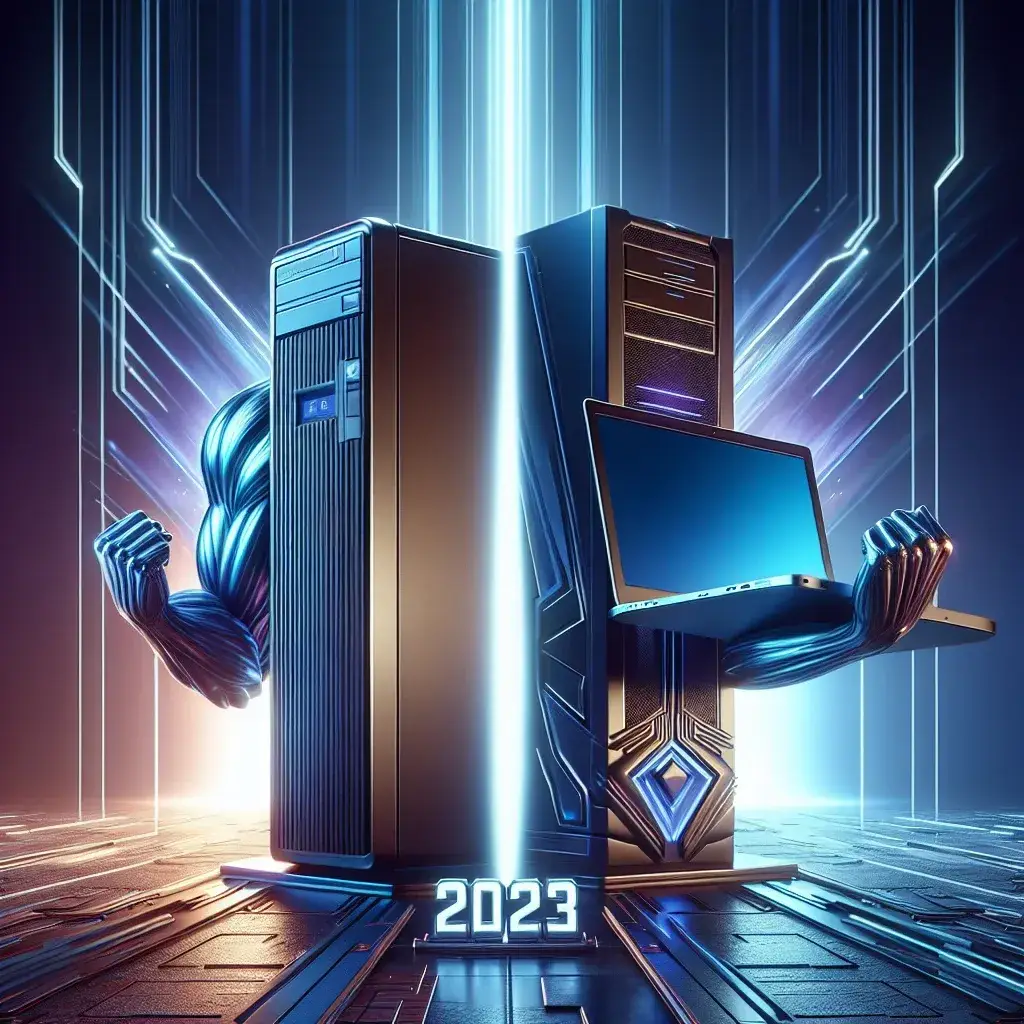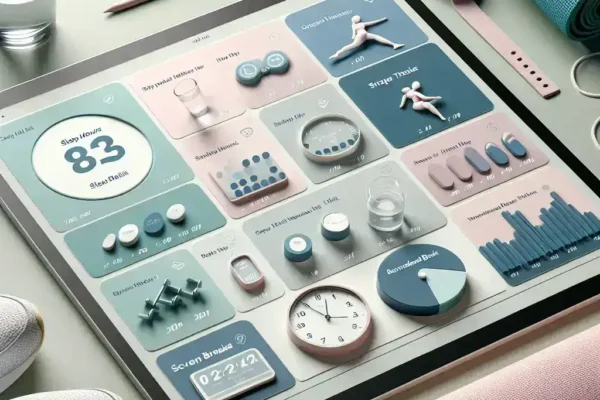In the ever-evolving world of technology, choosing between a desktop and a laptop can often feel like a daunting decision. Both options come with their own unique set of advantages and disadvantages, especially when it comes to performance. Whether you’re a tech enthusiast, a student, or a professional, understanding the nuances of desktop vs laptop performance can help you make an informed choice that suits your needs. In this article, we will delve into the key aspects of performance, portability, and practicality to help you decide which one reigns supreme in 2023.
Introduction
The debate between desktop and laptop performance has been ongoing for decades. While laptops have made significant strides in recent years, desktops still hold a strong position in the market due to their superior processing power and expandability. However, the gap is narrowing, and it’s important to consider various factors such as the intended use, budget, and personal preferences. Let’s take a closer look at how these two types of computers stack up against each other.
Performance Overview
When it comes to raw performance, desktops have historically had the upper hand. Desktop computers are designed to provide maximum power, making them ideal for tasks that require heavy computing resources. Laptops, on the other hand, are built for portability and efficiency, which sometimes means sacrificing some performance. However, modern advancements have blurred the lines between the two, making the decision more complex.
CPU and Processing Power
The Central Processing Unit (CPU) is the brain of any computer. Desktop CPUs are generally more powerful and can handle demanding tasks with ease. They have larger physical sizes, allowing for better thermal management and higher clock speeds. For instance, the latest Intel Core i9 and AMD Ryzen 9 processors offer unparalleled performance in desktop environments.
Laptops, while also equipped with powerful CPUs, often have to make compromises to fit within the limited space of a portable device. This can result in slightly lower clock speeds and limited cooling options. However, high-end laptops like the MacBook Pro and Dell XPS 15 have significantly improved their performance, making them viable alternatives for many users.
Graphics Capabilities
Graphics processing is another crucial aspect to consider, especially for gamers, video editors, and graphic designers. Desktops typically offer more robust graphics solutions, with dedicated GPUs from NVIDIA and AMD that can handle even the most graphically intensive applications. These GPUs can be easily upgraded, allowing for long-term performance improvements.
Laptops, particularly gaming laptops, have also seen significant advancements in graphics capabilities. Many high-end models now come with discrete GPUs, such as the NVIDIA RTX 3080 and AMD Radeon RX 6800M. While they may not match the performance of their desktop counterparts, they offer a compelling balance between portability and power.
Memory and Storage
RAM and storage play a vital role in overall performance. Desktops can accommodate more RAM and larger storage drives, often with the option to upgrade both components. This flexibility allows for extensive multitasking and the ability to store large amounts of data, making desktops a preferred choice for power users.
Laptops, while limited in terms of physical space, have caught up in recent years. Most modern laptops come with 16GB of RAM and SSDs, providing fast data access and smooth multitasking. However, upgrading RAM and storage in a laptop can be more challenging and sometimes impossible, depending on the model.
Portability and Mobility
One of the most significant advantages of laptops is their portability. Laptops are designed to be carried around, making them perfect for on-the-go work, travel, and remote learning. Their compact size and lightweight design ensure that you can take your computing power wherever you go.
Desktops, however, are stationary machines. They require a dedicated setup, which can be a downside for users who need to work in multiple locations. However, this lack of portability is offset by the superior performance and expandability that desktops offer.
Battery Life
Battery life is a critical factor for laptop users. Modern laptops can last anywhere from 8 to 16 hours on a single charge, depending on the model and usage. High-performance laptops, such as those used for gaming or video editing, may have shorter battery life due to the increased power consumption of their components.
Desktops, being plugged into a power source, do not have the same battery limitations. This means they can run at full capacity without worrying about running out of power. For users who need constant, uninterrupted performance, a desktop is the clear winner.
Heat Management and Cooling
Heat management is another area where desktops excel. Desktop cases are larger, allowing for better airflow and more advanced cooling systems. This means that desktops can maintain high performance for extended periods without overheating or experiencing thermal throttling.
Laptops, due to their compact design, often face challenges with heat dissipation. Many high-performance laptops incorporate advanced cooling solutions, but they can still struggle with maintaining consistent performance under heavy loads. This can be a concern for users who plan to run resource-intensive applications for prolonged periods.
Purpose and Usage Scenarios
The best choice between a desktop and a laptop ultimately depends on your specific needs and how you plan to use the computer. Let’s explore some common usage scenarios and which type of computer might be more suitable.
Gaming and Entertainment
For gamers, a desktop is usually the way to go. Desktops can support high-end gaming hardware, including powerful GPUs, ample RAM, and fast storage. This combination ensures smooth gameplay and the ability to run games at the highest settings. Additionally, the larger screen size and ergonomic setup provide a more immersive and comfortable gaming experience.
However, gaming laptops have also become increasingly popular. They offer a good balance of performance and portability, allowing gamers to enjoy their favorite titles on the go. Models like the Alienware x17 and ASUS ROG Zephyrus G14 are excellent choices for those who value mobility but don’t want to compromise on gaming performance.
Professional Work and Creativity
Professionals, especially those in creative fields like graphic design, video editing, and software development, often require powerful machines to handle their demanding workflows. Desktops, with their superior CPU and GPU capabilities, are the go-to choice for these users. They can handle complex tasks, run multiple applications simultaneously, and provide the necessary expandability for long-term use.
That said, laptops have become more viable for professionals who need to work on the go. High-end models like the MacBook Pro and ThinkPad P15 offer professional-grade performance and are built to withstand the rigors of daily use. They are also more compact and easier to transport, making them a practical choice for many professionals.
General Use and Everyday Tasks
For everyday tasks like browsing the web, streaming media, and basic productivity, both desktops and laptops can perform exceptionally well. The choice here often comes down to personal preference and lifestyle. Desktops provide a larger screen and a more stable environment, which can be beneficial for users who spend a lot of time at a desk.
Laptops, on the other hand, offer the convenience of portability. They are perfect for users who need to work in multiple locations or prefer a more flexible setup. Models like the HP Spectre x360 and Microsoft Surface Pro 8 are great for general use, combining performance with portability.
Cost Considerations
The cost of a desktop vs a laptop can vary significantly depending on the specifications and brand. Generally, desktops offer better value for money, as you can build a powerful machine for less than the cost of a high-end laptop. This is particularly true when it comes to custom builds, where you can choose individual components to meet your exact needs.
Laptops, due to their compact design and integrated components, tend to be more expensive. However, the convenience and portability they offer can justify the higher price for many users. It’s important to weigh the cost against the benefits to determine which option is the best fit for your budget.
Future Trends and Predictions
Looking ahead, the performance gap between desktops and laptops is expected to continue narrowing. Advances in mobile processor technology and cooling solutions will enable laptops to deliver even more power in a portable form factor. However, desktops will likely remain the top choice for users who prioritize raw performance and expandability.
One trend to watch is the rise of modular laptops. These devices allow users to swap out components like GPUs and storage drives, offering a level of customization previously only available in desktops. Companies like Razer and Acer are leading the charge in this area, and we may see more options in the near future.
Expert Opinions and User Reviews
To gain a broader perspective, let’s look at what experts and users have to say about desktop vs laptop performance.
Expert Insights
According to TechRadar, “While laptops have made significant strides in performance, desktops still offer the best value for users who need top-tier computing power.” They highlight the importance of expandability and the ability to upgrade components as key advantages of desktops.
PCMag notes that “High-end gaming laptops have almost closed the performance gap with desktops, making them a compelling option for mobile gamers.” However, they also emphasize the importance of considering the trade-offs, such as battery life and heat management.
User Reviews
Many users share their experiences and preferences online. On Reddit, a user stated, “I’ve always been a desktop person, but the new MacBook Pro changed my mind. It’s powerful enough for my graphic design work and I love being able to take it anywhere.”
Another user commented on a gaming forum, “I built a custom desktop for gaming, and it’s a beast. The performance is unmatched, and I can upgrade it whenever I want. But for travel, I have a gaming laptop that does the job pretty well.”
Conclusion
The decision between a desktop and a laptop ultimately boils down to your specific needs and preferences. If you require maximum performance, expandability, and value for money, a desktop is the way to go. It offers unparalleled power and the ability to handle even the most demanding tasks with ease.
On the other hand, if portability and mobility are crucial, a laptop is the better choice. Modern laptops have made significant strides in performance, and many high-end models can rival their desktop counterparts. Consider your budget, intended use, and lifestyle to make the best choice for you.
Whether you opt for a desktop or a laptop, the world of computing is more exciting and versatile than ever before. With the right selection, you can achieve the performance and functionality you need to excel in your personal and professional endeavors.



